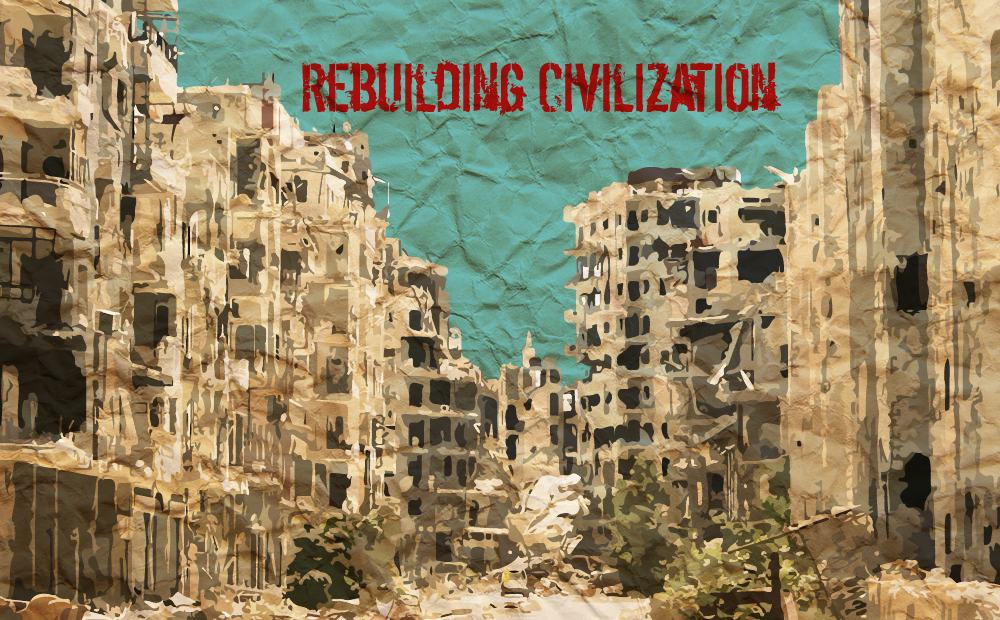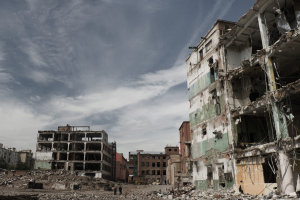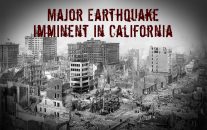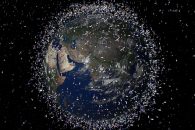
 Preppers spend a lot of time and energy figuring out what they need to do to protect themselves and their families in a wide variety of situations. However, their preps usually have more to do with basic sustenance than they do with prosperity. This is by necessity of course, since when disaster strikes, mere survival is often the best any of us could hope for.
Preppers spend a lot of time and energy figuring out what they need to do to protect themselves and their families in a wide variety of situations. However, their preps usually have more to do with basic sustenance than they do with prosperity. This is by necessity of course, since when disaster strikes, mere survival is often the best any of us could hope for.
But if we want to really thrive after a major disaster (and in this case I mean a truly cataclysmic disaster that throws us into a new dark age), hunkering down in our homes with weapons and freeze-dried food isn’t going to cut it in the long run. At some point after the dust settles, we’re going to have to come out of our bunkers and start rebuilding the kind of civilization that we want our children to grow up in.
Which, when you think about it, is an incredibly daunting task. A civilization that could provide even a fraction of the amenities that we have now, would rely upon millions of people carrying out thousands of unique services, any of which can derail civilization to some degree if they’re not fulfilled. And when you think about it that way, it almost seems impossible. Where do you even begin?
The truth is, that while civilization depends on everyone carrying out countless (and often thankless) jobs, there are a few core pillars of civilization that are more important than anything else. If after a disaster, these tasks are taken care of, everything else will eventually fall into place. Once it’s safe enough for you and your family to start engaging with what’s left of your community, these are the problems that will need to be solved first:
Re-establishing Order
As much we preppers like to criticize the government, we all know that if there isn’t some kind of system that punishes people who murder and steal, then we don’t have a civilization. Nothing will be rebuilt if people don’t feel safe enough to leave their homes.
After any kind of collapse however, there is a brief period of time where just about anyone could come to power, including people who have no business telling the rest of us what to do. You see this all the time in developing nations, where bandits, warlords, and drug cartels are often the only form of authority for some communities. The actions taken by you and your community after the collapse, will determine whether or not you will live under criminals, or live under a system that respects your rights, protects your property, and appropriately engages with neighboring communities.
Rebuilding Communication Networks
A civilization is only as advanced as its mode of communication. If after the collapse, the only way to send a message is by written letters delivered on horseback, then your community will have all the luxuries of an 18th century village. But if you can establish some kind of electronic communication, you’ll be in pretty good shape.
Obviously, the survivors of the collapse won’t have the resources or know-how to get the internet up and running again. Instead, ham radio operators will likely be the best candidates for rebuilding global communications. Even though these radios can’t send or receive signals globally, they still have a range of dozens of miles, and sometimes hundreds of miles in perfect conditions. A network of these operators working together, could help small isolated communities relay messages across any given continent.
Opening Transportation Routes
It’s been pointed out before that once the trucks stop delivering goods, civilization will grind to a halt. One of the first orders of business for any fledgling survivors, will be reopening and repairing transportation channels, so that goods can once again reach their homes. This may require the removal of abandoned cars from crumbling roadways, or if nearby bridges have collapsed, survivors may have to construct pontoons or makeshift cable ferry’s to transport goods until the bridges are rebuilt.
Producing Trade Goods
And finally, any community that wants to thrive after the collapse will have to produce some kind of tangible good or useful service that the world around them needs. If your community can make something that other communities need, it will be on the fast track to full recovery after the collapse, because then you’ll be able trade on a wider market and attain desperately needed supplies and labor for rebuilding civilization.
It could be something as simple as producing a surplus of food, or reopening a mine that went out of commission when everything fell apart. Communities that can’t produce something that the global economy needs, will be mired in poverty for years, and may resort to unsavory practices to survive. So if you’re thinking about moving to a rural area that will be safe from the chaos of a social collapse, take a good hard look at the local economy, and make sure that community produces something tangible that the world needs.
Joshua Krause was born and raised in the Bay Area. He is a writer and researcher focused on principles of self-sufficiency and liberty at Ready Nutrition. You can follow Joshua’s work at our Facebook page or on his personal Twitter.
Joshua’s website is Strange Danger
This information has been made available by Ready Nutrition








